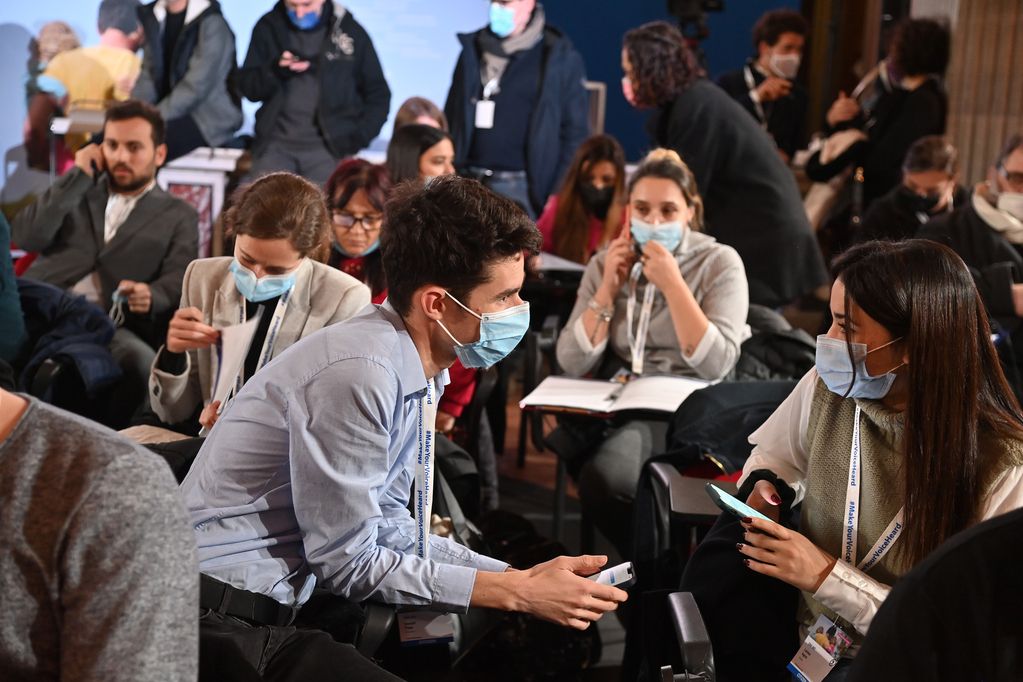Over the course of several months, the Conference on the Future of Europe brought about a series of debate events from which concrete proposals for the future of twenty-seven had to emerge from ordinary citizens of the European Union. The pan-European debate is now headed to the final, the proposals of the people are almost on the table. They’re not really that simple.
For example, conference participants suggested that discussions on a common European constitution should be reopened, in which citizens themselves should participate. Their role should be strengthened in other ways as part of the decision-making process in the Union – for example, they want to introduce a pan-European referendum.
Citizens also want to ensure more power for the European Parliament, for example on budget issues. He must also have the right of legislative initiative. So he can propose laws, which he can only do today European Commission.
According to Europeans, it also deserves more power EU thus, it should get a bigger voice especially in health policy. This is now completely in the hands of member states, and must now be included among the twenty-seven EU competencies with Brussels.
People also want to change European elections – for example, they want to be able to vote across European candidates. The Czechs thus had to elect not only Czechs to the European Parliament, but also other European politicians.
In addition to the grand vision, which would probably not be possible without broader institutional reforms, the recommendations also include proposals for very specific measures, such as mutual recognition of professional degrees in Europe, tightening of GDPR regulations or food creation. labels for consumers according to their effects on human health.
Citizen ideas vs. reality
Michaela ojdrová, member of the European Parliament from the People’s Republic of Lithuania, from a group dedicated to education, culture and sports, explains the practice of screening proposals for editorial offices.
“My job is to help ensure that the results are useful and viable for the future. I do not want to manipulate citizen proposals, but at the same time I cannot support unrealistic proposals, such as harmonization of educational programs at all school levels. education,” ojdrová described his role as group coordinator for the EPP political faction.
Today, the proposals are almost ready and citizens participating in the European discussion experiment hope that their months of work will not be in vain and that politicians will listen to their recommendations.
“We hope that our proposal will be accepted and implemented soon,” said Nicolas Morávek, one of the conference participants from Czech.
Last session
At the end of April, the plenary session will meet for the last time to finalize the list of recommendations. It will then be submitted to the so-called executive board, whose job it is to compile the final report. As bureaucratic as it may sound, according to Europeum Institute analyst Zuzana Stuchlíková, this is a key step for the conference’s outcome.
“It will be very important what recommendations will come to the final conclusion of the conference and in what form the demands will be put to the table of European politicians,” he explained.
How is the Future Europe Conference going?
At the heart of the conference are four citizen panels. In each of them, two hundred nationally elected representatives from across the European Union repeatedly discussed their ideas on the future of the bloc in order, after several meetings, to come up with recommendations on how the Union should function in the coming years.
The second key forum is the plenary session, where citizen proposals are confronted with the ideas of European and national politicians. Among the proposals are also ambitious points that require significant deepening of European integration, or even EU treaty reform.
The transfer of proposals emerging from the conference into practice will then be in the hands of EU politicians and institutions. According to analysts, it is still uncertain how they will deal with it.
“The next key stage is the discussion of the final conclusions in the Council (EU institution where ministers from member states meet – note ed.), which will determine how and if the implementation phase will take place. The dilemma over the shape of the output has accompanied the conference from the very beginning, and even a year after its inception, we don’t know how the Board will react to the recommendations,” he added.
Will there be the dreaded contract change?
According to Stuchlíková, there are several possible outcomes of the conference after the agency’s intervention. From the opening of the contract to the variant where the Board only records the results of the conference.
However, there is no long-term agreement to change the contract, the reform has supporters and opponents both across the European Parliament and across member states. According to Stuchlíková, this is also unlikely in the context of the current war in Ukraine. In addition, the outcome of the conference will be the Czech “to-do list”, which awaits the presidency of the Council of the European Union in the second half of the year and which has traditionally been more opposed to broader institutional reforms.

“Certified bacon geek. Evil social media fanatic. Music practitioner. Communicator.”







